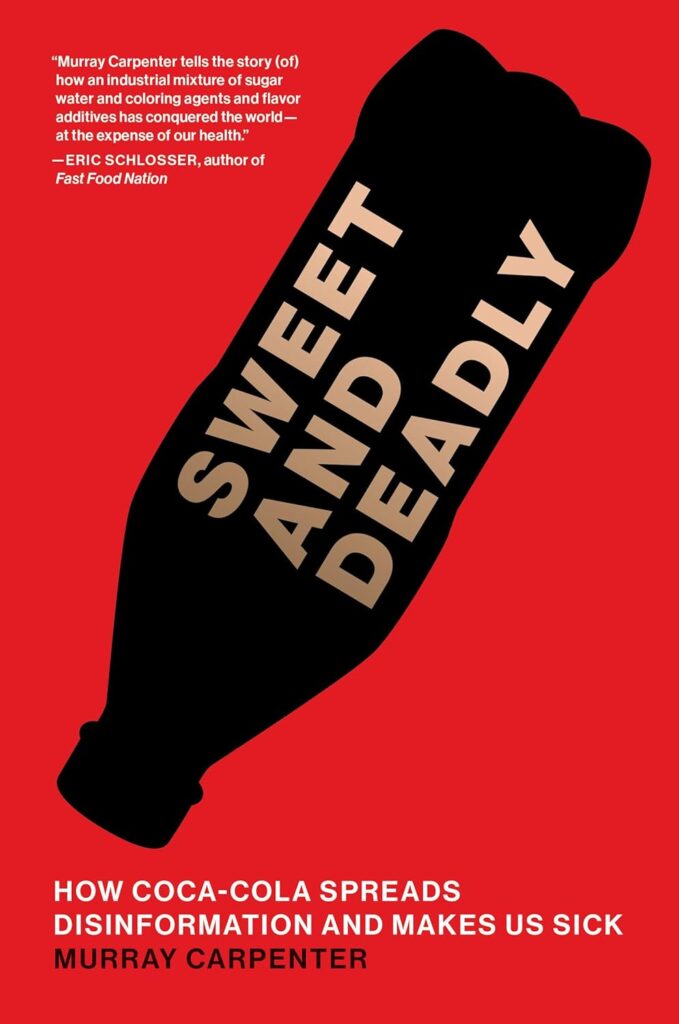Coke Does What To Life?
Murry Carpenter is a prolific science journalist. His latest effort, Sweet and Deadly: How Coca-Cola Spreads Disinformation and Makes Us Sick, is a comprehensive indictment of the soda company and its dangerous effectiveness in the first two decades of the twenty-first century. In a period where public health has tackled all manner of problematic substances, Coke has made scads of money and successfully avoided regulation. It is everywhere. Coke, Carpenter explains, is a harmful product that has remained on shelves and in our homes around the world through extraordinarily effective marketing, lobbying, strategizing and deceit.
Published by MIT, Sweet and Deadly is not a scholarly monograph. It is rigorously researched, but the format is very journalistic: short chapters, lots of facts and punchy prose. It is great with factoids and weaker on the larger argument of how soda fits within national debates about health and safety.
How do we talk about public health? The familiar arc, as Carpenter opens the book, is that when a product or issue is criticized, the critics are initially dismissed as cranks. Science, over time and through research, proves that there is merit to the criticism. The industry fights back. In most cases public opinion eventually turns, legislation is passed, and the problem is addressed. That is the history for tobacco, certain drugs and many other things that have been proven to be public health dangers. It is not the case for soda, even though there is overwhelming evidence that drinking soda has awful consequences. It leads to obesity, diabetes, and a host of medical issues. It is a major factor in the poor health of people in the US and around the globe.
The soda industry, led by Coke, has been remarkably successful in fighting back regulation and undermining science through pseudoscience and misdirection. This is the heart of Carpenter’s book. He moves quickly through Coke’s history. It is the big player in the soda industry and has been for over a century. Accompanying Coke’s popularity and pervasiveness has been a rising tide of health concerns. All of these are well-researched and Carpenter is very familiar with the studies. The book makes the dangers of soda drinking crystal clear.
What gives this book special focus is not the science or the studies. Instead, it is how government, business and public officials understand, shape and act on science. Sweet and Deadly documents how how science can be distorted, complicated, and redirected. Carpenter goes deep in explaining the many groups that do soda-friendly research, the campaigns that shift the burden of obesity to lifestyle changes (just exercise more!), and the lawsuits that have surrounding the soda industry for decades. It is a primer on how very smart and capable people framed public health issues so that they, and their companies, could continue to operate and turn a profit. The book shows how money can redirect studies, how policy and public opinion can be manipulated, and how difficult in can be to make nuanced arguments to effect change. It calls into question our understanding of expertise and authority.
Reading Sweet and Deadly will make it harder for you to want to drink soda, to see a Coke advertisement without considering the health consequences, and to question, without questioning, the health recommendations of “experts.” All told, some very good outcomes. For me, it made me quite happy with a glass of water.
David Potash
